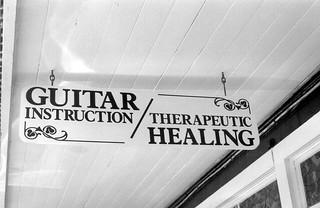Playing the guitar is an enjoyable pastime. You will hone fine motor skills, stimulate the brain's creative center and rid yourself of stress. If guitar playing is what you hope to learn or enhance, continue reading.
Start by learning the basics. It is important to take baby steps in order to run later on. Even though you may wish to play your favorite songs now, you must learn the basics at the outset. Learn positions for your fingers. Train yourself with basic scales and chords. Before moving on, you should know these things.
Recruit a teacher to help you. Although you may be able to teach yourself, a teacher can often give you advice that you won't be able to give yourself. While teachers will help you improve style of play, they can make many other suggestions as well. You can also ask questions, which sometimes helps.
Don't feel like you need to learn it all at once. You will be successful if you take your time and practice regularly. You will find real progress when you commit to a set amount of practice time every single day.
As you start out learning the guitar, find an well-made instrument that you can buy and practice on. If you can't buy your own, try borrowing or renting a guitar. This will help to get great sound when you play.
Stay motivated. Set short-term goals and long-term dreams for learning to play the guitar. Finding someone who is learning to play a guitar will give you a partner to practice with. As one week ends, give yourself a reward for practicing everyday consistently. Keep in mind that things worth doing will never be that easy.
When you are learning to play the guitar, it is always best to start out simply. Begin learning simple songs before you move on to you favorite songs. Though you may feel silly, children's songs can offer some simple, single-note melodies that will be easy to follow and build your skill.
Once you commit to the process of learning to play guitar, do not skimp on practice time. Keep in mind that hard work is essential for getting the things you truly want. Dedicate half an hour to practice as often as you can, preferably daily.
Try learning guitar tabs and musical notation. Musical theory will help you comprehend each scale as well as the way different chords function. This can help you to create music without stress. This expertise can help you when playing riffs and melodies.
You will probably want to buy a metronome. A metronome will help you get into a rhythm and learn timing. They help ensure that you are not floundering to keep pace. You will probably find that using a metronome is very beneficial to you honing your skills.
Begin with baby steps. It's difficult to master fast songs right off the bat. Begin slowly and learn each chord before speeding up. Focusing only on speed in the beginning will only frustrate you causing you to make more mistakes. Take it slow, get the song down pat, then your speed will increase as you memorize it.
When you wish to start taking the steps needed to play a guitar, you should do what it takes to get a good instrument to practice on. If you don't have enough money to purchase one, you should borrow one from a friend or rent one. To get your skills down the proper way, you're going to need a quality instrument.
Give your fingers a workout! Some chords will be more difficult to play than others and you have to get used to the strings in order to play them. Make sure you learn a few simple techniques and exercises to strengthen your hands so that you can play even better than before.
You now know there is much to learning how to play the guitar. You can concentrate on new styles, fingering techniques or developing your own style. Use these tips the next time you play a guitar.
Building calloused fingertips helps you when learning the guitar. Playing the guitar can be painful. Calluses will help. It takes quite some time to develop callouses, but practicing more will create them faster. There are products available that help them develop.

